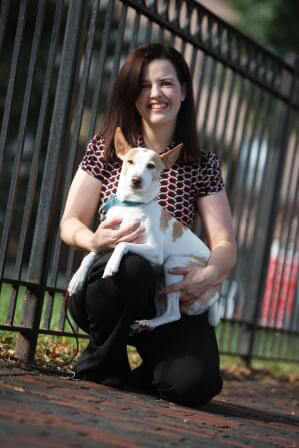Make Time for Quiet Time
I’ve spent some time thinking about the difference in behavior and welfare of the dogs in our shelters versus my dogs at home.
Our dogs here at the Animal Rescue League of Boston receive good enrichment: a bed, toys, and a comfortable place to rest; they go on walks three times per day; they join doggie playgroup (if they like other dogs) every day; have treat buckets outside their cage so volunteers and visitors can reward good behavior when passing by; and various other enrichment/activities based upon the dogs’ needs.
In addition to my full-time job at the Center for Shelter Dogs, I am also mom to an active 2 year old boy and several dogs (four permanent residents and occasionally a foster dog or two). Because of my busy life, my dogs often receive less ‘enrichment’ than the dogs in our shelter, but my dogs are clearly happier than our shelter dogs. Why??
The biggest difference that I can determine is that my dogs at home spend quiet time with me, every single day, and they have the freedom to make a CHOICE as to whether or not to spend it and HOW to spend that time. Our shelter dogs don’t have that quiet time, and they don’t have that choice (more about making choices in a future blog)!
When we provide enrichment to our shelter dogs, we usually think about physically engaging activities, and these certainly are a very important part our programs. However, many shelters are missing a critical piece to their enrichment programs- quiet time. Enrichment/training sessions for our dogs involve 3 aspects: play, training, and quiet time. Play reduces their stress and energy levels; training improves their adoptability; and quiet time reduces their stress and gives them a chance to relax and be loved/petted by people. Many shelter dogs who are housed in shelters long-term (more than two weeks) seem to forget how to be calm/relax around people, which can make the transition into a new home very difficult. If you aren’t already doing it, we encourage you to incorporate quiet time into your enrichment programs!

– Dr. Sheila D’Arpino, Senior Applied Animal Behaviorist at The Center for Shelter Dogs
